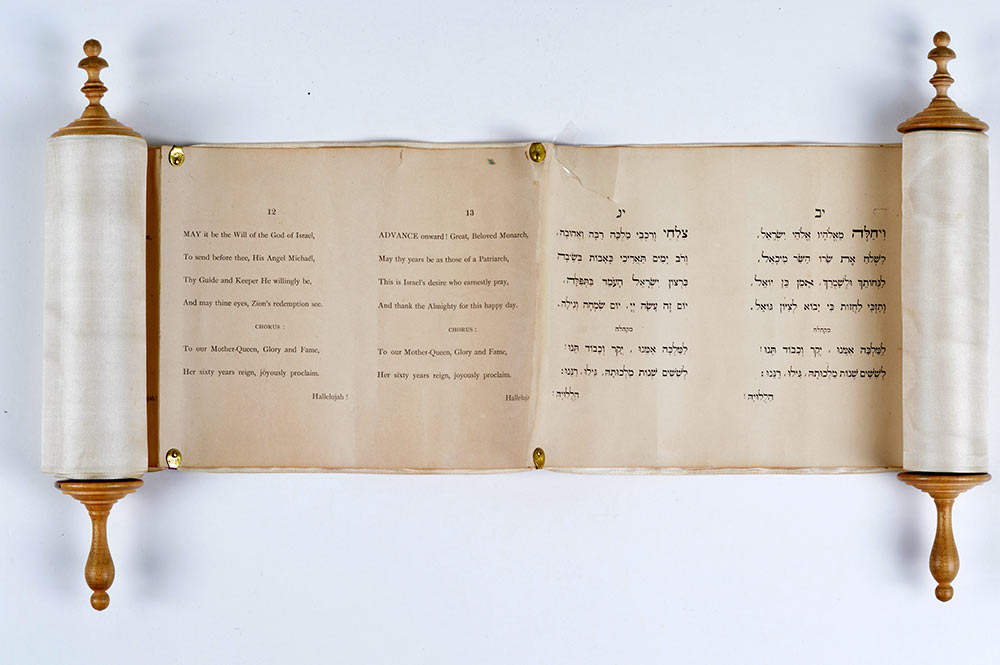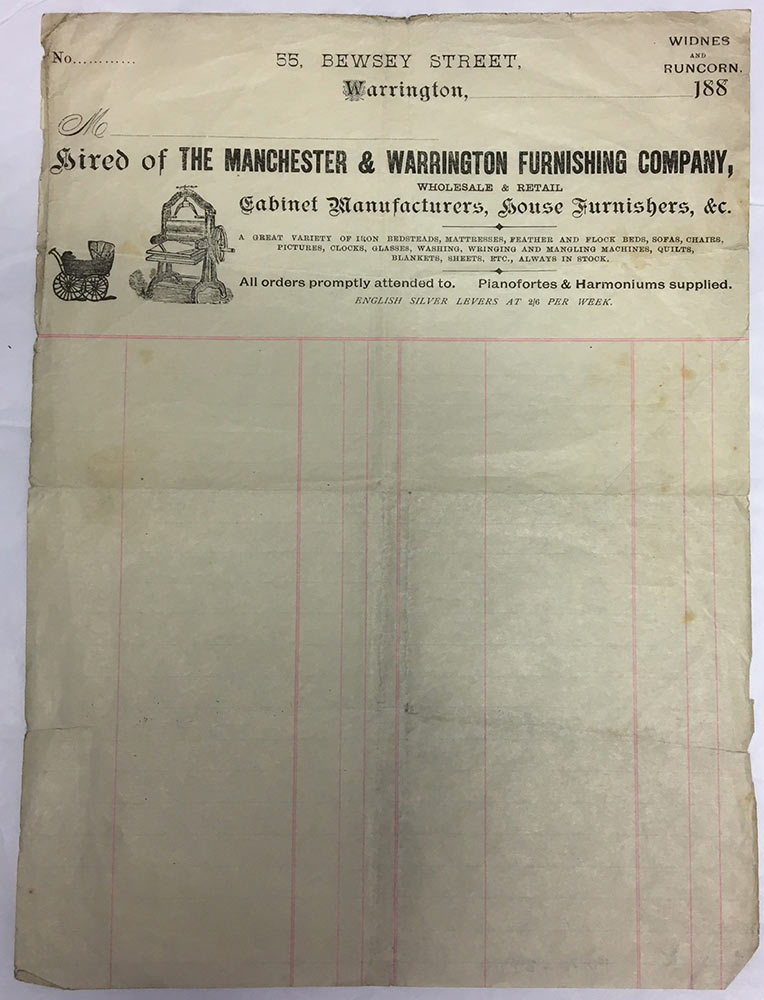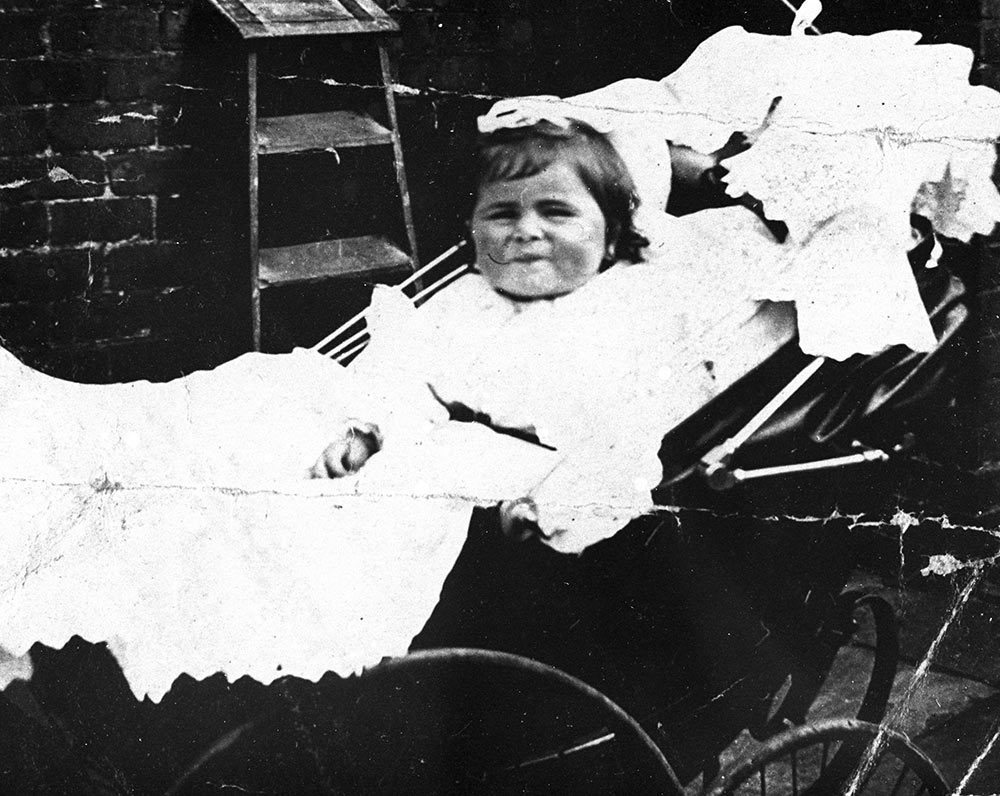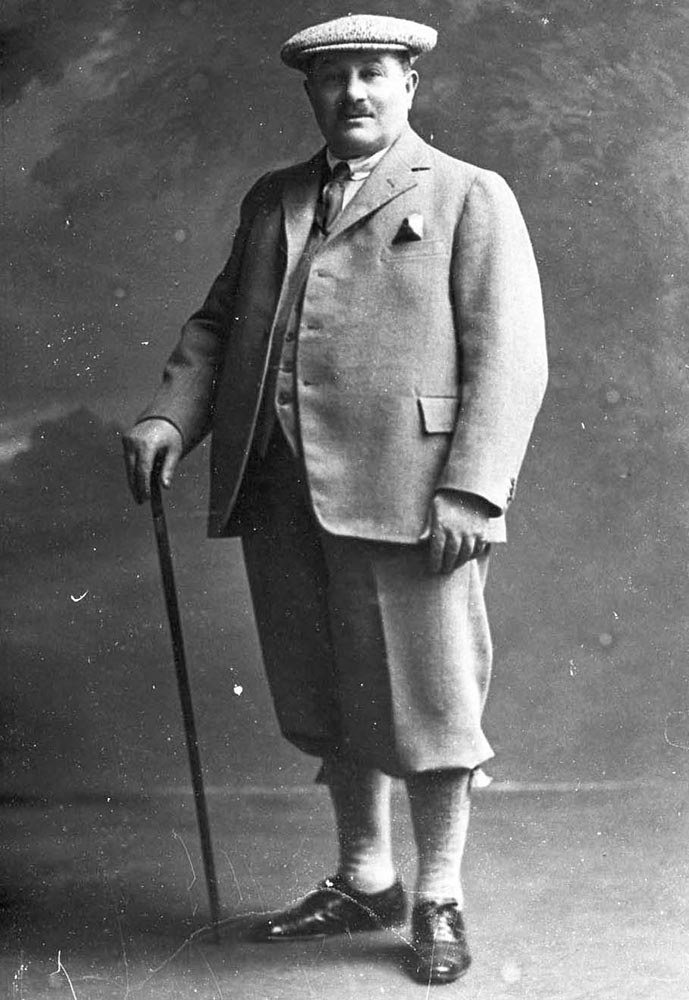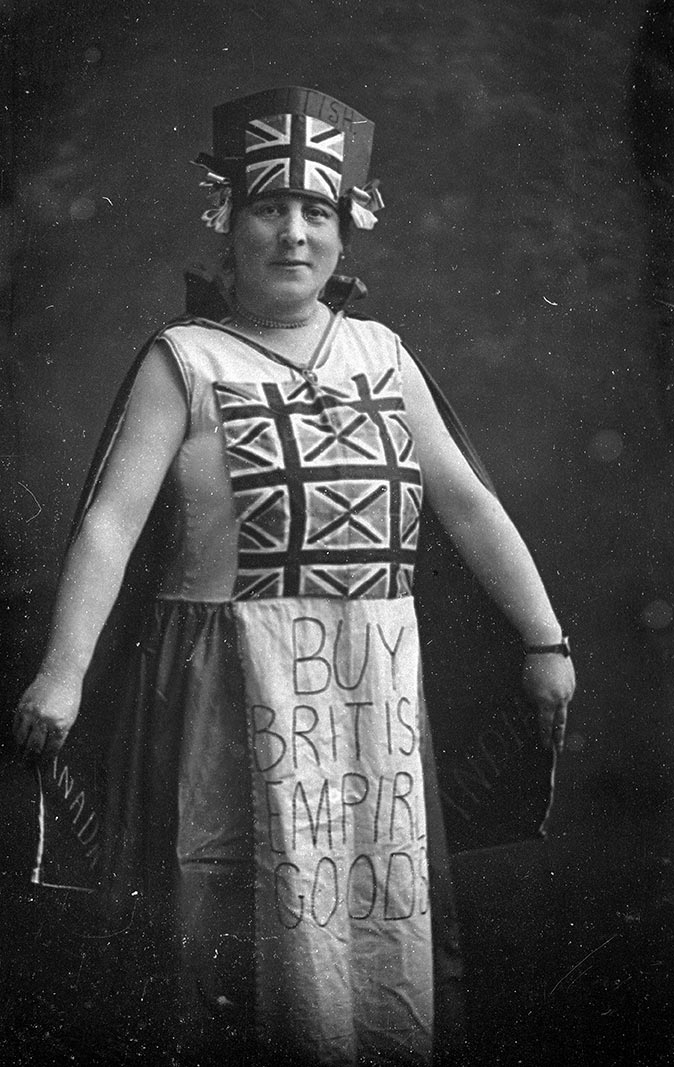Swipe to read
Marjorie (Samuel’s daughter) describes what attracted her father to England.
Read Transcript
“The reason he came … he’d always say, ‘I’m here through Sir Moses Montefiore.’ Because Sir Moses Montefiore, as you probably know, was a friend of Queen Victoria and he travelled all over the world, you know, travelled to Palestine and he went to visit the Tsar of Russia to try and save the Jews there, who were treated very badly. So, the word got round to all the villages that a Lord from England, Jewish, had come to save the Jews and he was speaking to the Tsar and he was coming from Queen Victoria. So, my father said, ‘if a Jew can be a Lord in England that’s where I’m going’…
You say your father was one of eleven?
Yes, the youngest.
And he was the youngest, and yet none of his other brothers and sisters had come across before him?
Well no, he was a character that’s why. He was a very formidable character. If he made up his mind to do anything, he would do it. And he came, and when he came, his father said to him, ‘If you’ve got a chance to see Sir Moses Montefiore please do and kiss him for me.’ … He heard that they were having a celebration the following week for the hundredth birthday of Sir Moses Montefiore which was 1884 … So he had some visiting cards printed and he dressed himself up … and he arrived at the door of where the party was which was at Sir Moses Montefiore’s home … So somehow or other he produced his card and they let him in and he said that Sir Moses Montefiore was sitting at the top of a staircase where there were stairs on both sides and they announced the names of people to go up, and he went walking up you know and he said he kissed him on one hand, he said, “This is from me, but this is from my father.”
Marjorie describes her father’s early aspiration for a high position within the community.
Read Transcript
“Did he have an occupation in Lithuania before he came across?
Well no not really. I don’t think they ever learnt anything except Hebrew, he was very good at davening. His father wanted him to be a chazan and he said, well no because he had seen the presidents of shul going round in a coach and he said I’m not going to be a chazan, I’m going to be a president. And so he was, eventually.”
Marjorie describes her father’s attitude to business.
Read Transcript
“You know he was nice looking and he had a way with him … and he had a sort of charm even though he couldn’t speak much English, but he was quite a character … And when he came up to the north and he started in furniture … You know he was marvellous really, that a person with really no business education should have done so well. Many, many a time he used to come in and say, ‘Make me a letter.’ He always spoke foreign even until the day he died. And so my mother or I always had to sit down and we used to write ‘Dear Sir, enclosed please find so and so, please put to my account, yours faithfully, S. Claff.’
You have no idea of why he went into furniture?
Well knowing him, as I did, he probably thought he’d make more money that way. I mean he wanted, he liked to live well. I mean he liked nice things, he liked nice clothes, any pictures that you see of him he is very beautifully dressed, he always had his shirts made, he always wore a buttonhole … He is what they would call today ‘a dresser’.”
Marjorie describes her father’s motivations for establishing the Jewish Hospital.
Read Transcript
“When the Jewish Hospital started, and my father was dead keen on it the anglicised people were against it, they thought it would cause antisemitism. But my father of course being of the foreign religious ones thought it would be a good thing. He really started it, I’m jumping about a bit, because he broke his leg and he was taken to the Royal Infirmary and it was very difficult for him with having his kosher food and everything else, and he thought well we can afford it but what about the poor people who can’t. They would have to eat treif perhaps. So that’s what made him very keen on the Jewish Hospital, but the anglicised ones were dead against it. A lot of trouble anyway just let me finish this, every time he used to come over and he used to make this speech, he always used to get this little dig in at Nathan Laski, he always used to say, ‘Of course when I was first interested in the Hospital and Mr Laski was dead against it,’ or something like that. It always used to make me laugh. He was a bit argumentative, and it used to give him a lot of pleasure. When my father came home from a meeting and he’d had an argument with somebody he was absolutely glowing, you know. This person said something to me, but I said this, you know. He really seemed to put; he would really be thrilled.”
Marjorie describes her parents’ ‘anglicised Yiddish-ness’.
Read Transcript
“No, it was a sort of anglicised Yiddish kind which I think doesn’t happen anymore now. It’s very funny because she didn’t even, I’m not sure if she made Gefilte fish which she must have done that. But she used to make – we always used to have roast beef and Yorkshire pudding on a Sunday; it wasn’t made with milk, it was Yorkshire pudding made with egg and you know a proper batter and we used to have that on Sunday! Funny isn’t it. She used to get all the food ready on a Friday, now whether it was cooked on Shabbos; I doubt it very much. No I think it was probably cooked but you see we always used to have maids so they would do everything. She didn’t do any work on Shabbos and I’ll tell you this another thing we did not open our letters on Shabbos, the maids used to bring them up and open them … So I mean you know, some things yes, and some things no. When you look back, but we were considered, probably, almost the most religious in Southport at the time.”
